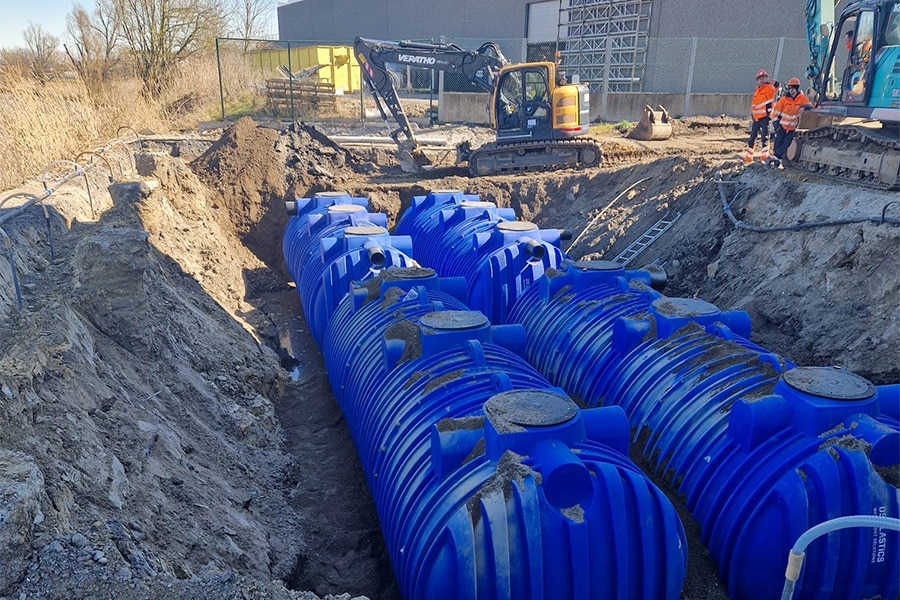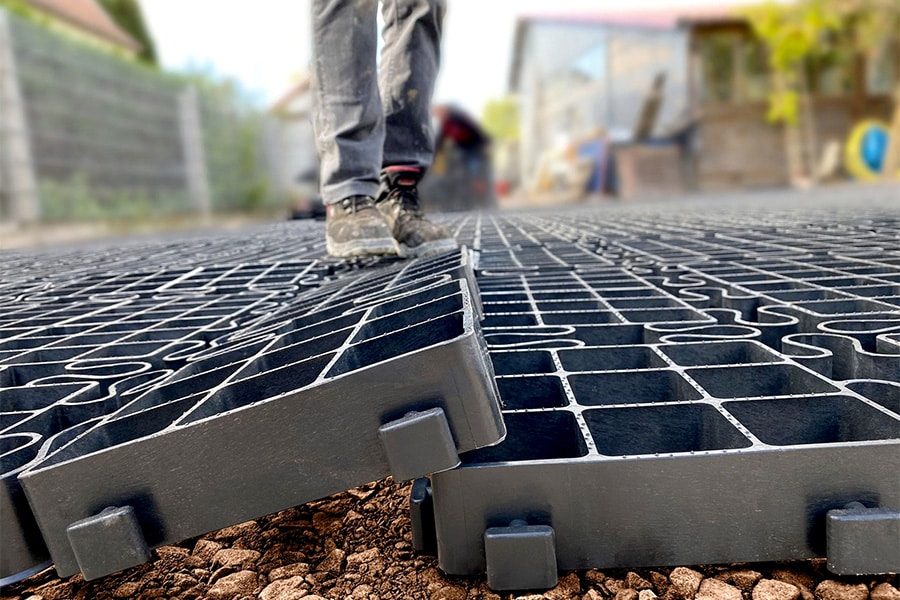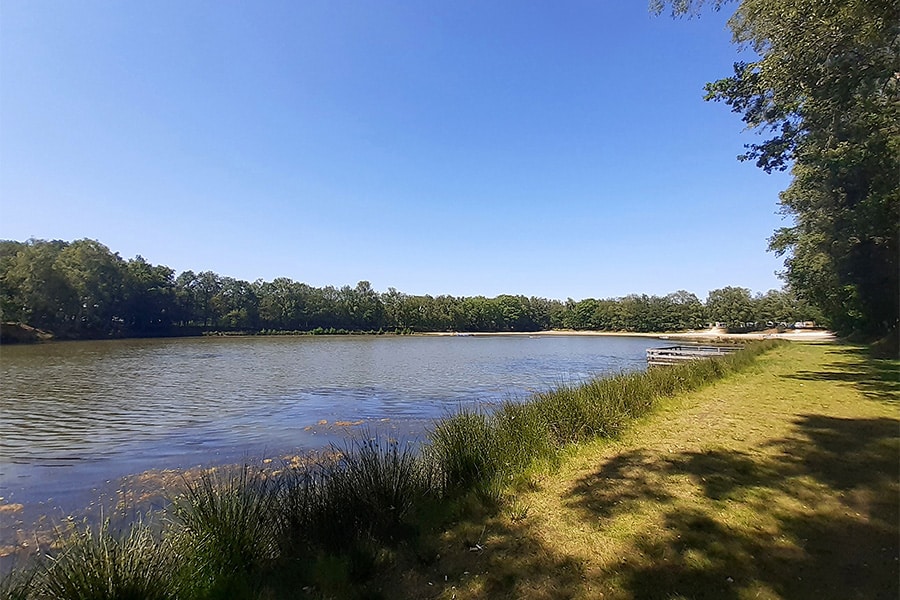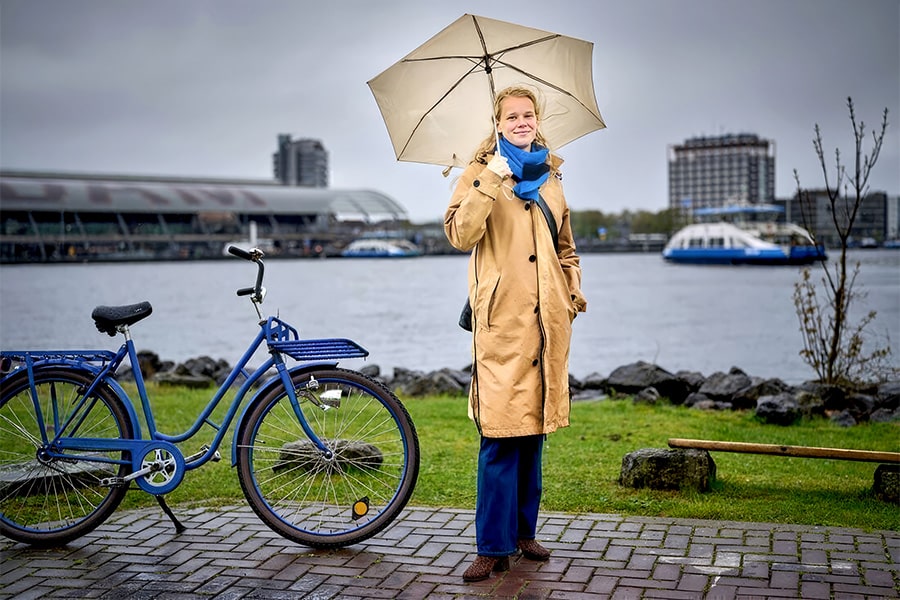
17 million kilograms of CO2 reduction thanks to cementless paving
For municipalities that want to make their paving materials sustainable, v.d. Bosch Beton of Almelo has the solution: Reduton® cementless concrete. Thanks to the extremely low CO2-emissions and MKI score, this is a very interesting option for sustainable infrastructure projects, from a simple sidewalk to green parking. Berry Mullink of v.d. Bosch Beton explains where and how Reduton is used.
From a large municipality like Rotterdam to smaller municipalities like Twenterand, Hellendoorn, Dalfsen and Steenwijkerland. They have sustainability on the agenda and choose to use Reduton in the construction of bicycle paths, pedestrian paths and streets, among other things. "We see Reduton as the so-called low-hanging fruit," said Mullink. "It is available immediately, fully certified and 100% recyclable. That makes it relatively easy for municipalities and other governments to invest in sustainable infrastructure projects. From the construction of a bike lane or pedestrian path to green parking lots and complete roads."
KIWA certificate
Seven years ago, in 2016, v.d. Bosch Beton invested in a plant to produce concrete based on geopolymer concrete, i.e. without cement. "We ran a six-month trial for this together with the province of Overijssel to test it. This went so well that we were ready to produce Reduton. To guarantee the quality and make it demonstrable, it is KIWA-certified. This certificate offers the assurance that Reduton meets current standards while at the same time allowing comparison with classic materials."

Advantages
The main difference between Reduton and regular concrete is that in Reduton the cement is replaced by geopolymers. This type of concrete uses raw materials that produce less CO2-emissions than traditional cement concrete. In addition, secondary building materials are used as aggregates. "As a result, we achieve extreme CO2-reduction of up to 75% and the environmental costs are many times lower. The EQI is about 60% lower than that of cement concrete. In the eight years we have been working, we have already demonstrably reduced 17 million kilograms of CO2 reduced." In addition to these two major advantages, there are a number of other aspects that make the application of Reduton attractive. For example, it has a longer lifespan, higher final strength and is fully recyclable and can be returned to the regular concrete supply chain.
Green parking
If we look at sustainable infrastructure projects, it's not just about sustainable materials but also about, for example, the climate-adaptive design of streets and neighborhoods. Green parking is part of this. V.d. Bosch Beton actively plays into this together with Park Positive and AquaBase. "Parking lots occupy some 15% of public space within urban areas and can be greened relatively easily. With the products Flood Twin, Gradient and KAP Grass Element, we offer a solution for greening and infiltration of rainwater in urban areas. We regularly organize knowledge events for interested parties at our location in Almelo. Would you like to know more about Reduton and/or about Green Parking? Follow us on LinkedIn, check out our website and especially contact us."
Heeft u vragen over dit artikel, project of product?
Neem dan rechtstreeks contact op met v.d. Bosch Concrete b.v..
 Contact opnemen
Contact opnemen



